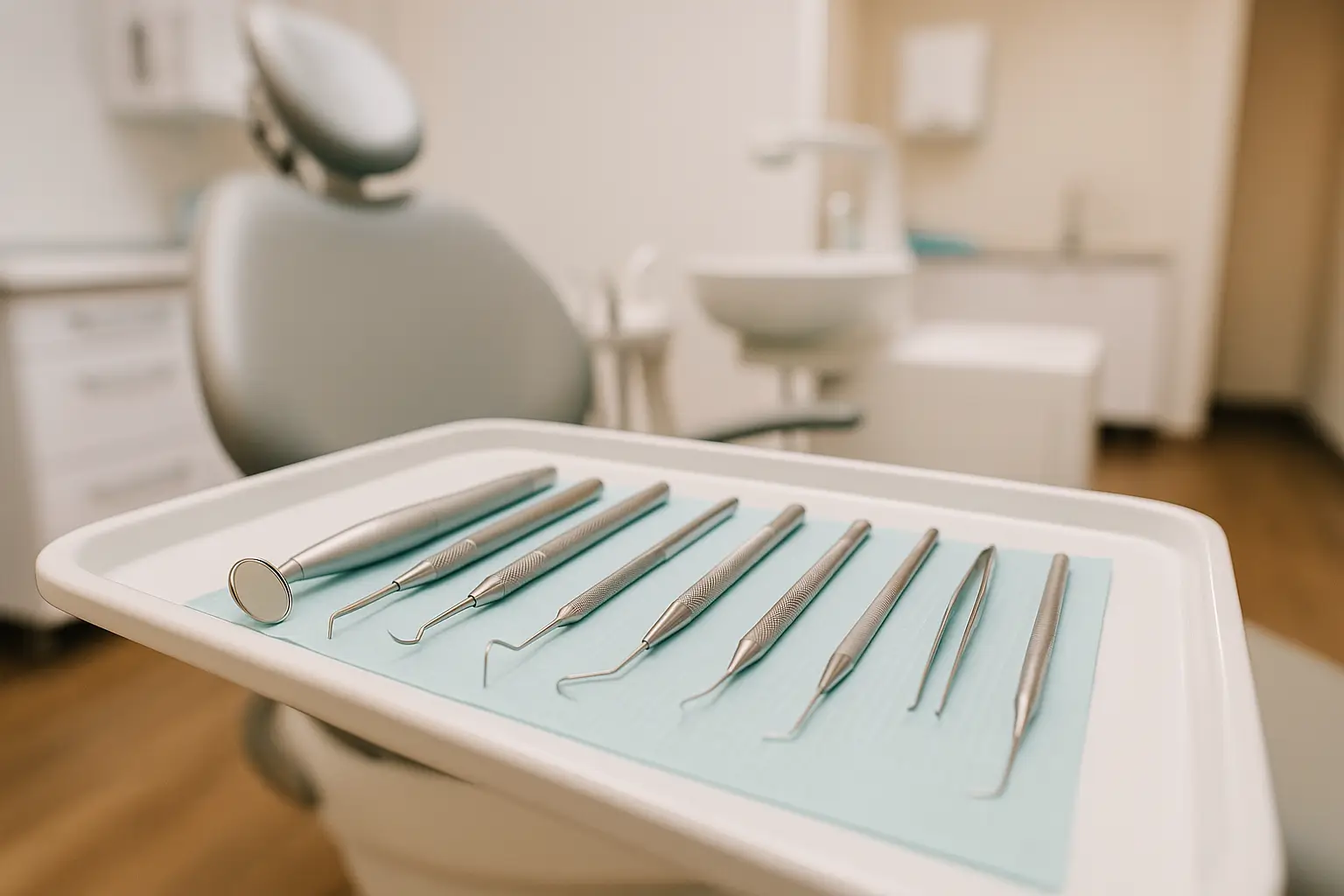Dental Hygiene or Dental Assisting: Which Career Path is Right for You?

Choosing a career path in the dynamic world of dentistry is an exciting endeavor. Two of the most vital and in-demand roles are Dental Hygienist and Dental Assistant. While both contribute significantly to patient care and practice efficiency, they offer distinct responsibilities, educational pathways, and day-to-day experiences. If you’re asking, “Which path is right for me?”, you’ve come to the right place.
At Dental Professionals, we connect talented individuals with fulfilling dental careers across various settings. Let’s explore these two fantastic professions to help you make an informed decision.
The World of a Dental Hygienist: Prevention and Education at the Forefront
Dental Hygienists are licensed oral health professionals primarily focused on preventive dental care. They play a crucial role in helping patients maintain optimal oral health and prevent dental diseases.
Key Responsibilities Often Include:
- Performing patient screenings, assessing oral health conditions, and reviewing health history.
- Conducting dental prophylaxis (cleaning teeth) by removing plaque, tartar, and stains.
- Applying preventive materials like sealants and fluorides.
- Taking and developing dental radiographs (X-rays).
- Educating patients on proper oral hygiene techniques and post-operative care.
- Counseling patients about nutrition and its impact on oral health.
- Documenting patient care and treatment plans.
Education & Licensing: To become a Dental Hygienist, you typically need to:
- Graduate from an accredited dental hygiene program, usually resulting in an Associate’s degree. Bachelor’s and Master’s degrees are also available for those interested in research, teaching, or public health.
- Pass national written examinations and state or regional clinical licensing exams.
- Learn more about specific requirements from the American Dental Hygienists’ Association (ADHA)
Skills for Success: Strong manual dexterity, attention to detail, critical thinking, excellent communication and interpersonal skills, and a compassionate demeanor are essential.
The World of a Dental Assistant: The Dentist's Right Hand
Dental Assistants are versatile team members who provide a wide range of support to dentists, patients, and the overall dental office. Their role is crucial for ensuring smooth and efficient dental procedures and office operations.
Key Responsibilities Often Include:
- Assisting the dentist during procedures (chairside assisting) by passing instruments and materials.
- Preparing and sterilizing instruments and equipment.
- Ensuring patient comfort before, during, and after treatment.
- Taking and developing dental X-rays (in states where permitted with appropriate training).
- Taking impressions of patients’ teeth for study casts.
- Instructing patients on oral hygiene and post-operative care.
- Performing office management tasks, such as scheduling appointments, managing patient records, and handling billing.
- Assisting with laboratory tasks under the direction of a dentist.
Education & Licensing: The path to becoming a Dental Assistant can vary:
- Many complete accredited programs (typically 9 months to 2 years) leading to a certificate or diploma.
- Some states allow for on-the-job training, though formal education is often preferred by employers.
- Certification (e.g., Certified Dental Assistant – CDA from the Dental Assisting National Board – DANB) can enhance job prospects and may be required for certain advanced functions.
Skills for Success: Excellent organizational skills, multitasking ability, teamwork orientation, good communication, empathy, and the ability to follow instructions meticulously.
Dental Hygienist vs. Dental Assistant: Key Differences at a Glance
Feature | Dental Hygienist | Dental Assistant |
Primary Focus | Preventive care, patient education, direct treatment | Chairside support, office duties, patient preparation |
Autonomy | Higher level of autonomy in patient care | Works more directly under dentist’s supervision |
Education Length | Typically 2-4 years (Associate’s or Bachelor’s) | Typically 9 months – 2 years (Certificate/Diploma) |
Licensing | Mandatory state licensure | Requirements vary by state; certification often valued |
Direct Patient Care | Extensive direct, hands-on prophylactic care | Mix of direct patient interaction and indirect support |
Which Career Path is Right for You?
Consider these questions:
- How much time can you commit to education? Hygienist programs are generally longer.
- What kind of patient interaction do you prefer? Hygienists often spend more one-on-one time providing direct treatment and in-depth education. Assistants interact significantly but often in a more preparatory or supportive capacity during procedures.
- Do you prefer a role with more autonomy in clinical decisions (within your scope), or do you thrive in a highly supportive, team-based role executing tasks?
- What are your long-term career aspirations? Both fields offer growth, but the paths diverge (e.g., hygienists might move into education or public health; assistants might advance to office management or specialized assisting roles).
Both careers are incredibly rewarding and essential to the dental health ecosystem. The “right” choice depends entirely on your personal interests, skills, and career goals. For more insights into dental careers, the American Dental Association (ADA) Career Resources and the Bureau of Labor Statistics Occupational Outlook Handbook are excellent external resources.
Frequently Asked Questions (FAQ) About Dental Hygiene and Assisting Careers
Q1: Is it harder to become a Dental Hygienist than a Dental Assistant?
A: Generally, yes. Dental Hygiene programs are typically longer (Associate’s degree minimum) and more academically rigorous due to the advanced clinical skills and theoretical knowledge required for licensing and autonomous patient care. Dental Assisting programs are often shorter and more focused on direct application of supportive tasks.
Q2: Can a Dental Assistant become a Dental Hygienist?
A: Absolutely! Many individuals start as Dental Assistants to gain experience in the dental field and then decide to pursue a Dental Hygiene degree. Some coursework or experience may be transferable, but a full hygiene program and licensure are still required.
Q3: What is the job outlook for Dental Hygienists and Dental Assistants?
A: The job outlook for both professions is generally very positive. According to the U.S. Bureau of Labor Statistics, demand for both roles is projected to grow faster than the average for all occupations, driven by an aging population and increased awareness of the importance of oral health. This strong demand is seen across various regions, including Spokane, Ferry, Stevens, Pend Oreille, Lincoln, Adams and Whitman Counties.
Q4: What are the typical work hours like?
A: Most dental hygienists and assistants work full-time, though part-time positions are also common, offering flexibility. Work hours usually align with standard dental office hours, which may include some evenings or Saturdays depending on the practice. Our Temp To Hire service can often provide insight into various scheduling needs.
Q5: Are there significant physical demands for these roles?
A: Yes, both roles can be physically demanding. They require good manual dexterity, the ability to sit or stand for extended periods, and sometimes involve repetitive motions. Proper ergonomics and technique are important to prevent strain.
Find Your Place with Dental Professionals
No matter which path you choose, Dental Professionals is here to help you find the perfect opportunity. We specialize in connecting skilled dental talent with leading practices across various regions and settings.
- Looking for your next role? We offer Direct Hire placements, Temp To Hire options that let you try before you commit, and flexible Temp Staffing
- Explore diverse work environments: Whether you envision yourself in a fast-paced Private Practice, a structured DSO or Corporate setting, or specialized fields like Orthodontics, Periodontics, Endodontics, or Pediatric Dentistry, we have connections. We also proudly serve Community Health and Public Health Dental Clinics.
- We serve a wide range of locations:
- In Washington: From Benton, Chelan, Douglas, Grant, Kittitas, Klickitat, Okanogan, and Yakima Counties to Spokane, Ferry, Stevens, Pend Oreille, Lincoln, Adams and Whitman Counties, and the vibrant Puget Sound including Greater Seattle.
- We also have opportunities in Oregon and the Greater Portland Area.
Ready to take the next step in your dental career?
Both Dental Hygiene and Dental Assisting offer fulfilling, stable, and growing career opportunities. By understanding the nuances of each role, you can align your passion with the profession that best suits your aspirations.
Contact Dental Professionals today to discuss your career goals or browse our current openings. Let us help you make your mark in the dental field!

